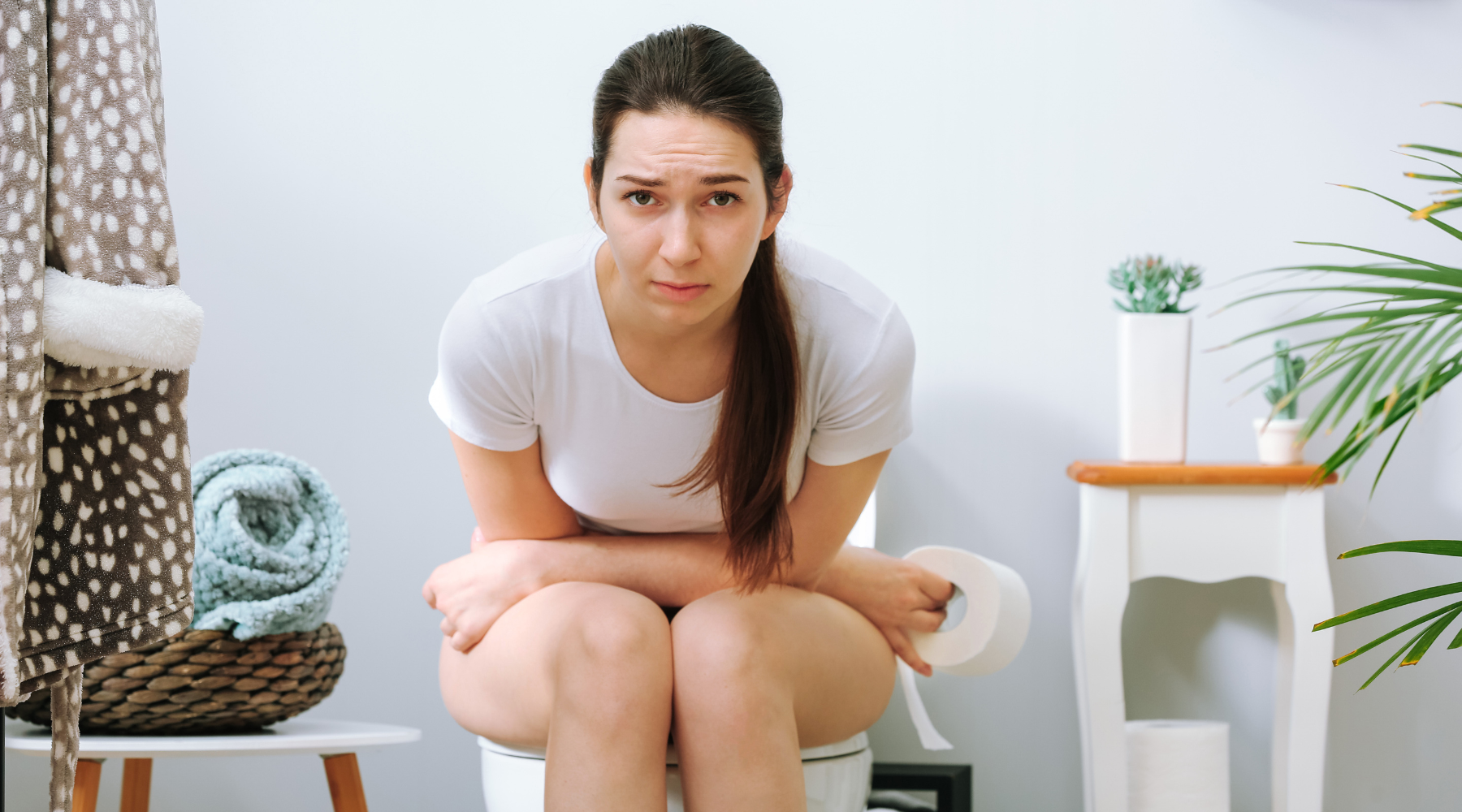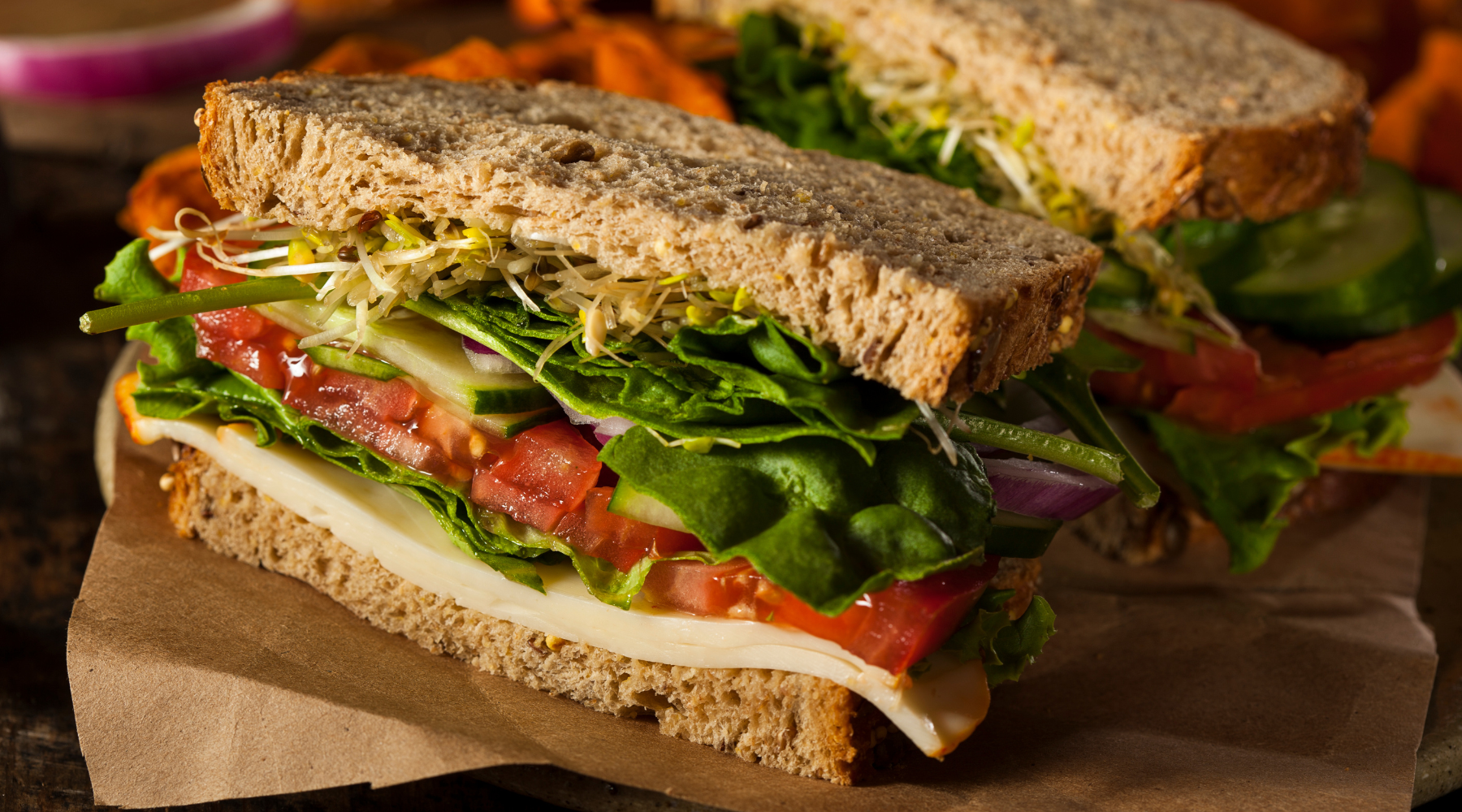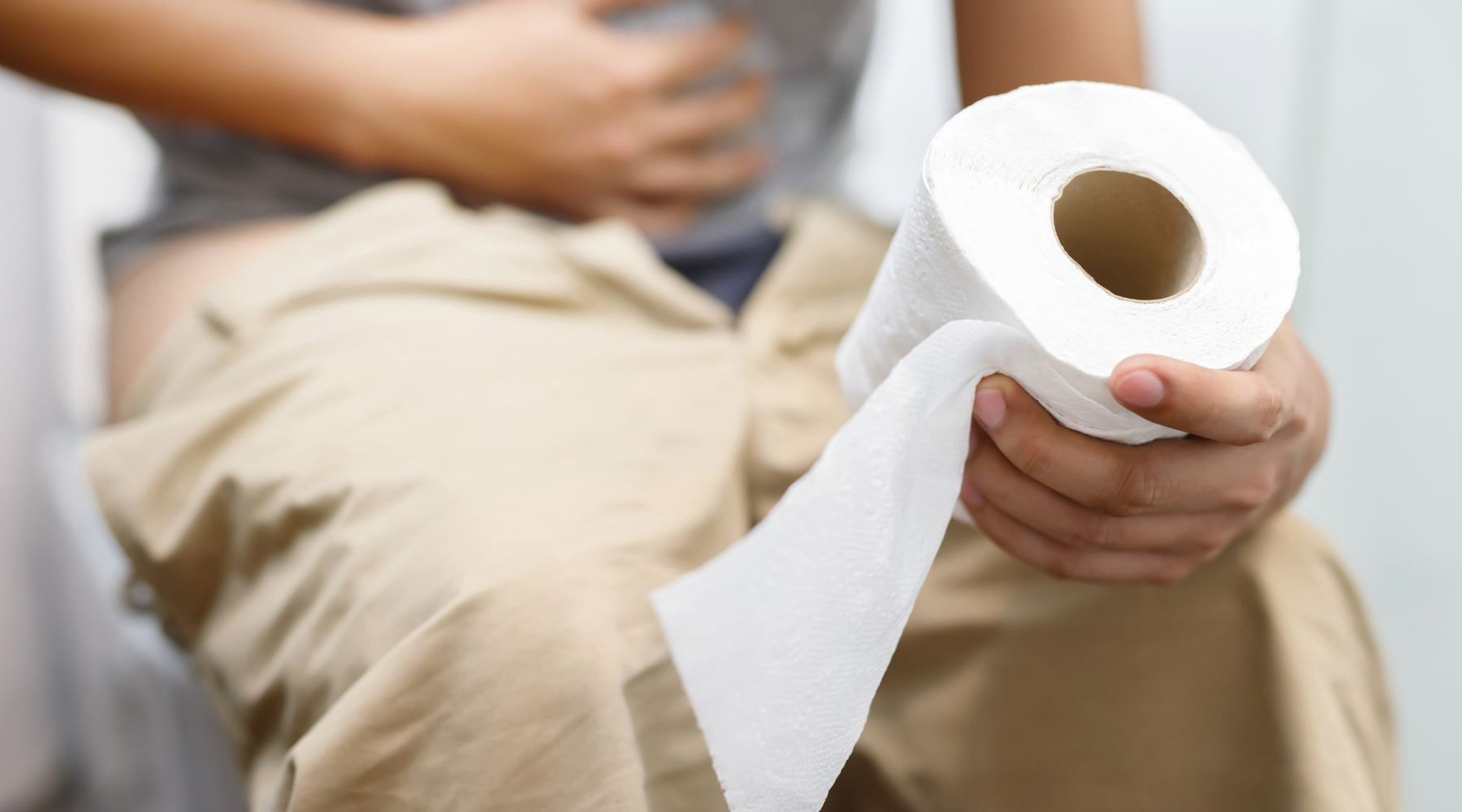Constipation… What is it ? Constipation is caused when your digestive system absorbs too much water from your food. The result of this is your stools (poop) which are produced at the end of the digestive process, get dry and hard, and they are not easy to pass when you go to the toilet. Because of this, bowel movements occur less frequently. It can be uncomfortable and not an easy subject to talk about but It is a common gastrointestinal problem that affects all ages. As many as one in five people over the age of 30 experiencing constipation at some point in their lives and chronic constipation has been reported in 15% to 25% of the general population. (1) (2) Constipation can also occur with pregnancy, side effects of some medications and other medical conditions. (3) Most cases are not serious, but, it may signal an underlying disorder or lead to complications. (4) Everybody’s bowel habits are different. 'Normal' bowel habits are several times a day for one person and once every three to four days for another person. In an ideal world, everyone would pass a softly formed stool without any discomfort or pain, once or perhaps twice a day. (5)
What Are the Symptoms? A wide range of symptoms can be experienced with constipation.
- Less than three stools a week being passed
- lumpy or hard stools
- straining when having bowel movements
- feeling like there is a blockage that prevents bowel movements
- Feeling as though you can't completely empty the stool when you go to the toilet(6)
Constipation Causes? Constipation has many causes
- not eating enough fibre
- not drinking enough water
- lack of exercise
- ignoring the urge to go to the toilet
- stress!!!(7)
How to Fix it Naturally? Diet Avoid eating foods that are rich in animal fats such as dairy products, meats, and eggs or refined sugar but also low in fibre (whole grains, fruits, and vegetables).
Water Constipation commonly occurs because of dehydration. If your body is dehydrated then your bowel most definitely it. People can make the mistake of trying the traditional method of eating more fibre. The problem with that is, the more fibre you have, the more water you need. So, if you are already dehydrated and then adding food that is going to make you even more dehydrated. The end result is you are going to be clogged and feel bloated. To keep hydrated remember to drink plenty of fluids, especially water and fruit juices. Drink 6 to 8 glasses of water daily in addition to beverages with meals. Whatever you are drinking now, drink more. (8)
Reduce Alcohol and Caffeine Alcohol and Caffeine causes increased urination which means more water is leaving the body. This leads to dehydration because of an increase in water absorption from the intestine. This can, in turn, lead to constipation when not enough fluid is retained in the stool. The amount of alcohol and caffeinated beverages ( coffee, tea and cola drinks) can affect constipation. For every cup of coffee, tea, or alcoholic drink you have, try and have an extra glass of water to prevent dehydration. 2 natural remedies that also increase your fluid intake are lemon juice and coconut water
Lemon Juice Squeeze a half of lemon juice in a glass of warm water Lemons are packed with vitamin C and this helps the digestive system by allowing the smooth passage of stool, and water is a natural lubricant to keep your stool soft.(9)
Coconut Water Coconut water is an excellent alternative to water or sugary drinks. It is perfect for keeping hydrated because it has a high electrolyte content. (10) Careful not to drink too much too quickly because it will cause loose stools.
Relax ! If you relax, then the muscles involved in bowel movements are also relaxed so it’s easy to pass a stool.
Biofeedback Biofeedback is a painless process that uses a computer and a video monitor to show what is happening with your bodily functions. Sensors can measure these functions and we receive information (feedback) on how our bodies work. With the help of a therapist, body processes can be checked to see if they are working correctly. Your Bowel can be shaped with biofeedback. Sometimes the changes in the body can interrupt our ability to command the body function. With Biofeedback techniques, the correct patterns can be relearned. (11)
Bowel Habits If you feel like you need to go then don’t ignore it! this can lead to constipation. If you ignore the urge regularly then over time, you can stop feeling the urge to have bowel movements. It can occur easily because we are all so busy and put off going to the toilet or we don’t want to go to a public toilet. (12) Some tips for healthy bowel habits
- have a regular time and place for going to the toilet, preferably after meals
- allow plenty of time. don’t rush. Rushing causes straining
- if you feel the urge to poo then don’t delay
- resting your feet on a low stool, and if possible, raise your knees above your hips when using the toilet. (13)
Exercise Regular physical activity is so important for bowel health. Increase your activity level to 15 to 30 minutes, 3 times per week if permitted by your doctor. An exercise that can help improve bowel movements is a knee-to-chest position. Such positions may activate bowel movements Try a daily exercise such as the... knee to chest Spend about 10-15 minutes in this position. Breathe in and out deeply.(14)
Magnesium Magnesium is a natural laxative and it helps to naturally relax muscles, including the smooth muscles of the bowel.
A magnesium citrate supplement can be taken, daily or until you’re having normal, soft bowel movements. Magnesium is also handy to take when traveling. A low dose of magnesium citrate tablets as a dietary supplement will help stay regular and boost your diet. (15)
Aloe Vera Aloe Vera is popular for its medicinal properties and one of this is treating constipation. The outer portion of the plant contains compounds called anthraquinones that have a laxative effect. Aloe juice and aloe latex have been used as laxatives, but should not be confused with aloe Vera gel used for wound healing or sunburn. (16)
Fiber
Get more fibre in your diet. Water is drawn into the stool when you eat fibre. This makes the stool softer and easier to pass. Aim to gradually increase your fibre intake. If you are starting a high fibre diet, start by increasing fibre by 5 grams a day. (17) Some of the best foods for fibre are (per Grams of fibre per serving) Split peas (cooked) 16.3 Black beans 15.0 Artichoke (cooked) 10.3 Raspberries 8.0 Bran cereal 5.3 Oatmeal (instant) 4.0 Apples (with skin) 4.4 Brussels sprouts 4.1 Figs (dried) 1.6 (18 )
Try this Recipe for Constipation Relief. Blend together these ingredients: 1 cup pitted prunes 1 cup raisins 1 cup pitted dates 1/2 cup orange juice 2/3 cup prune juice Consume 2 tbs for constipation relief. (19) Refrigerate up to 2 weeks or freeze for longer periods. If diet and lifestyle changes are not enough to alleviate constipation, consider adding a fiber supplement to the diet. There are many of these available, including psyllium. In general, these fiber supplements are safe and effective if taken with enough water. Fiber supplements are not laxatives and must be taken regularly (whether you are constipated or not) in order for them to help you avoid future constipation. They are generally taken suspended in a glass of water one to three times daily. Start with once a day dose, and increase to twice daily after a week, and then to three times daily after another week if necessary. (20)
Psyllium Husk - mifibe Psyllium is also known as ispaghula. It’s a is a member of the plant genus Plantago, a family of small, plants commonly called plantains or fleaworts. Psyllium is a mild bulk-forming laxative that's best suited for long-term use in people with constipation. The Psyllium seed husks can be used to treat constipation. (21) Psyllium consists of the seeds and their husks (the dry outer covering of the seeds) and has been used as a source of soluble dietary fiber for centuries. When crushed and combined with water, psyllium forms mucilage, a viscous or gelatinous solution that can help with constipation. With constipation, the mucilage is slippery and this helps the blockage move through the intestines and colon.
Psyllium has other benefits too. It has been used to treat high cholesterol because it can lower both total and LDL (bad) cholesterol levels, which may help reduce the risk of heart disease. Psyllium may also help with blood sugar regulation. (22)
*NOTE: If you choose to use remedies involving homeopathy, herbs, dietary and nutritional supplements, acupressure, aromatherapy, and other alternative or complementary healing methods; keep your doctor informed about every medication or medicine-like substance you use and seek medical advice before taking any medication or remedy.
References Balentine.J.R. E-Medicine Health,
Constipation in Adults, 2019. Accessed at
https://www.emedicinehealth.com/constipation_in_adults/article_em.htm#constipation_in_adults_quick_overview Blatchford.E ,
Constipated? These Foods Will Help You Go Naturally, 2016. Accessed at
https://www.huffingtonpost.com.au/2016/01/19/foods-to-help-constipation_n_9021120.html Canadian Cancer Society,
Constipation, 2019. Accessed at
https://www.cancer.ca/en/cancer-information/diagnosis-and-treatment/managing-side-effects/constipation/?region=on Chilukoti.B,
Home remedy to treat constipation,
https://www.thehealthsite.com/diseases-conditions/home-remedy-to-treat-constipation-lemon-juice-206003/ 2014 GI Society, Canadian Society of Intestinal Research, Constipation and Diet, 2018 Accessed at
https://badgut.org/information-centre/a-z-digestive-topics/constipation-and-diet/ Harvard Health, Harvard Medical School, 2019
https://www.health.harvard.edu/bladder-and-bowel/natural-ways-to-relieve-constipation Health Direct
, Constipation, 2017 Accessed at
https://www.healthdirect.gov.au/constipation healthyy.net,
3 Proven Benefits of Aloe Vera for Constipation & Its Dosage, 2019. Accessed at
https://healthyy.net/superfoods/aloe-vera-for-constipation International Foundation for Gastrointestinal Disorders,
About Constipation, 2017. Accessed at
https://www.aboutconstipation.org/biofeedback.html Levy.J,
7 Foods that Make the Best Natural Laxatives, 2015 https://draxe.com/natural-laxatives/ Liu. LW,
Chronic constipation: Current treatment options, 2011, Canadian Journal Gastroenterology. Accessed at
https://www.ncbi.nlm.nih.gov/pmc/articles/PMC3206558/ Mayo Clinic,
Constipation, 2019. Accessed at
https://www.mayoclinic.org/diseases-conditions/constipation/diagnosis-treatment/drc-20354259 mifibe,
Psyllium-husk-benefits-and-uses, 2019. Accessed at
https://www.mifibe.com/2019/05/30/psyllium-husk-benefits-and-uses/ Molloy.F and Ryan.C,
Constipation, ABC health and wellbeing, 2013. Accessed at
https://www.abc.net.au/health/library/stories/2009/04/09/2595331.htm NHS,
Constipation, 2017 Accessed at
https://www.nhs.uk/conditions/constipation/ Uni of Michigan,
Psyllium, 2019. Accessed at
https://www.uofmhealth.org/health-library/hn-2150006 US National Library of Medicine, Medline Plus,
Constipation – self-care. 2019
. Accessed at
https://medlineplus.gov/ency/patientinstructions/000120.htm Weingus.L,
9 natural remedies for constipation that’ll do you a solid, 2019 Accessed at
https://www.wellandgood.com/good-advice/natural-remedies-for-constipation/ (1)Molloy.F and Ryan.C, 2013 (2)Liu. L.W, 2011 (3)Health Direct, 2017 (4) Balentine.J, E-Medicine Health, 2019 (5) Molloy.F and Ryan.C, 2013 (6) Mayo clinic
2019 (7)
Balentine.J.R. EMedicine Health, 2019 (8) Blatchford.E, 2016 (9) Chilukoti.B, 2014 (10) Levy.J, 2015 (11) International Foundation for Gastrointestinal Disorders, 2017 (12) Balentine.J.R, 2019 (13) NHS, 2017 (14) Balentine.J.R, 2019 (15) Weingus.L, 2019 (16) healthyy.net, 2019 (17) Canadian Cancer Society, 2019 (18)Harvard Health, 2019 (19) GI Society, 2018 (20) GI Society, 2018 (21) Uni of Michigan, 2019 (22) mifibe, 2019



